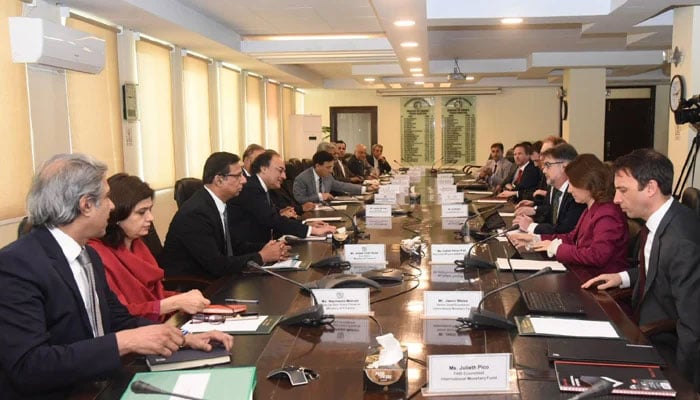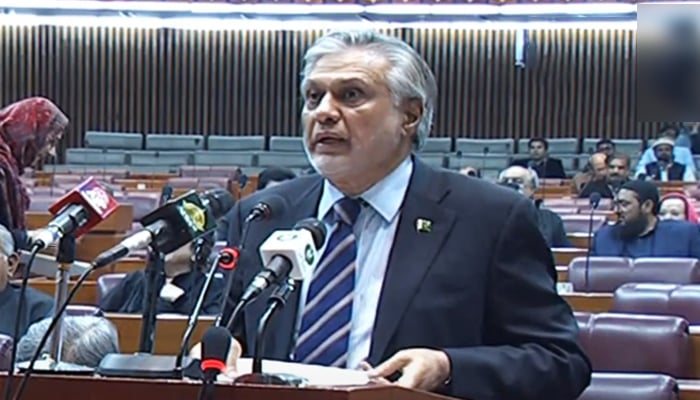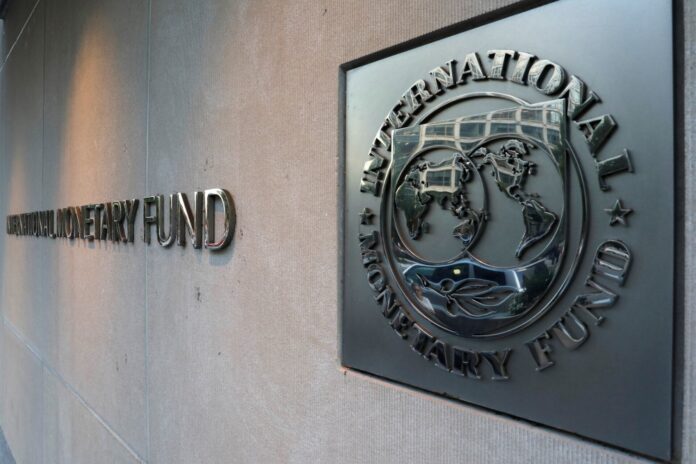The International Monetary Fund (IMF) has issued a stern warning to Pakistan, urging the country to either cut expenditures or unveil a mini-budget to address the significant revenue shortfall of Rs. 189 billion. This call for immediate action comes as the IMF team, visiting Islamabad from November 11 to 15, assesses Pakistan’s fiscal situation. The financial institution’s emphasis is on improving tax collection and reducing unbridled spending to avoid deeper economic challenges.
Two Options on the Table
The IMF has proposed two main strategies to Pakistan’s government to resolve its fiscal gap. The first is to introduce a mini-budget aimed at addressing the Rs. 189 billion shortfall by boosting revenue collection. The second option involves implementing a rigorous plan to reduce government expenditures, which have been mounting in recent years. Finance Secretary Imdad Ullah Bosal and Federal Bureau of Revenue (FBR) Chairman Rashid Mehmood Langrial are currently engaging with the IMF team to explore these solutions.

Challenges in Tax Collection
A significant point of concern for the IMF is Pakistan’s struggle to meet its tax collection targets. Despite efforts like the Tajir Dost Scheme (TDS), which aims to integrate retailers and wholesalers into the tax net, the results have been disappointing. The TDS collected just Rs. 1.7 million in the first quarter of the current fiscal year, far below the target of Rs. 10 billion. However, the FBR has reported a positive outcome from regular taxation measures, collecting an additional Rs. 11 billion from retailers and wholesalers in the first quarter. This suggests that while the TDS failed to deliver, the traditional tax mechanisms are making progress.
The IMF’s concern also extends to the broader fiscal and economic framework for the year. Pakistan’s tax-to-GDP ratio remains low, and the IMF has stressed the importance of improving this ratio to ensure long-term fiscal sustainability. With rising inflation, the fiscal deficit, and external debt, Pakistan faces mounting pressure to adjust its economic policies to avoid further fiscal slippages.

Immediate Action Needed
Given the fiscal challenges, the IMF’s preferred solution seems to be unveiling of a mini-budget. This would allow Pakistan to raise necessary funds quickly and shore up its economy, avoiding the deeper crisis that could result from further delays. However, cutting expenditures may not be sufficient given the tight fiscal space, leaving the mini-budget as the more viable solution. With the IMF’s guidance, Pakistan now faces a crucial decision that will impact the country’s financial stability in the coming months.
As the IMF mission continues its meetings in Islamabad, Pakistan’s leadership is under pressure to make tough decisions to balance the economy and meet its financial commitments. Without swift action, the country risks worsening its fiscal hole, potentially reaching unsustainable levels by early 2025.
Stay tuned to Brandsynario for the latest news and updates









































